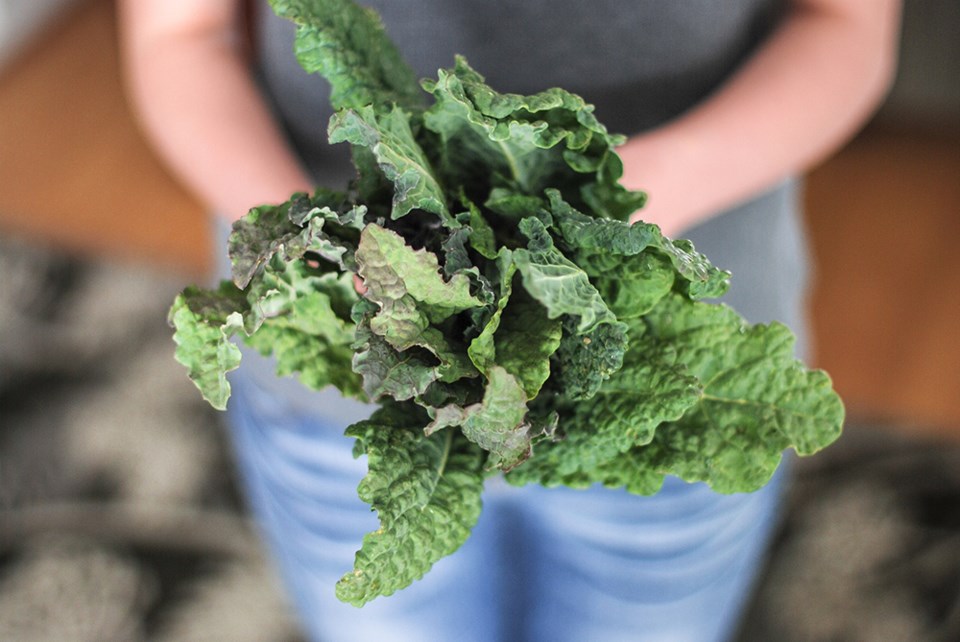No matter where you live or how green your thumb, you can probably succeed at growing something green and nourishing this spring. Whether it’s kale and broccoli for your plate, mint for a refreshing drink, or rosemary for your potatoes, growing greens ties us into the natural world while feeding our senses, stomach and spirit.
Even apartment dwellers can experience the satisfaction of seeding for a local harvest. North-facing balconies can harbour cool-loving greens such as spinach, lettuce and parsley through the summer months. Warmer microclimates on your land will happily crank out basil and tomatoes to your palate’s great satisfaction. Ambitious, but have only a little space? Look into vertical gardening planters.
However big your land and time commitment, connecting to the seasons by growing some of your food is going to pay off, often in ways you might never have suspected. Spending time cultivating plants outside could instigate community connections as neighbours pass by. Who knows, you might even be a silent poster child, getting others on your block into their gardens, too. And, the simple act of being in fresh air, regardless of the weather, is a benefit known to all dog owners, however begrudging the initial few steps outside the door feel.
Whether intended or not, skipping a trip to the produce aisle every once in a while inevitably means we are consuming less plastic packaging and incurring less greenhouse gas guilt. Even the farmers’ market can’t top your zero mile front yard harvest’s footprint.
Your mother may have been the first to say it, but now you know it: greens are good for you. They satisfy our body’s need for deep nourishment that many foods we fill our bellies with don’t. How great do you feel when you start your day off with a greens-based smoothie or fill your lunch bowl with garden fresh harvest? The more available the greens, the more likely you are to toss some into a meal, so get growing!
Now’s the time to plant seeds inside, using a grow light to foster quick germination. Or, wait to pick up plant “starts” through gardener friends and at local nurseries in early to late spring. If even this proves too daunting, there are soil-free hacks to growing. Immerse lettuce hearts in water and witness them root out and begin to regrow leaves. Rest assured, the little ones in your world will be into such experimentation.
If friends have fallow, untended garden beds, ask to sprinkle in a few kale, chard, lettuce and parsley seeds now, and you’ll be greeted by a harvest with only the slightest bit of tending needed. Watered in the mornings or evenings when the hotter days arise, you’ll have something green to brag about soon enough. True, deer are also interested in sampling your greens, but may only need a little deterrence to move on. Fishing line and wooden stakes can protect a small bed in no time.
If all this feels too involved for your current schedule, consider supporting other greens growers at farmers’ markets or through purchasing garden bonds from local farms. Adventurous greens seekers can source out wild harvested greens that require no tending whatsoever, such as stinging nettle and many species of kelp.
Packed with micronutrients, fresh organic greens support immune health. Never has there been a time when we’ve been so aware of fostering our body’s natural ability to protect against illness. As we continue to focus on other ways to prevent disease, let’s nourish ourselves from the inside out as well.
Those of us with an overabundance can offer from our excess bouquets of greens to friends, neighbours and even strangers curbside. Greens just may become one of our most valued currencies in the years to come.
Let’s Talk Trash is qathet Regional District’s waste-reduction education program. For more information, email [email protected] or go to LetsTalkTrash.ca.



